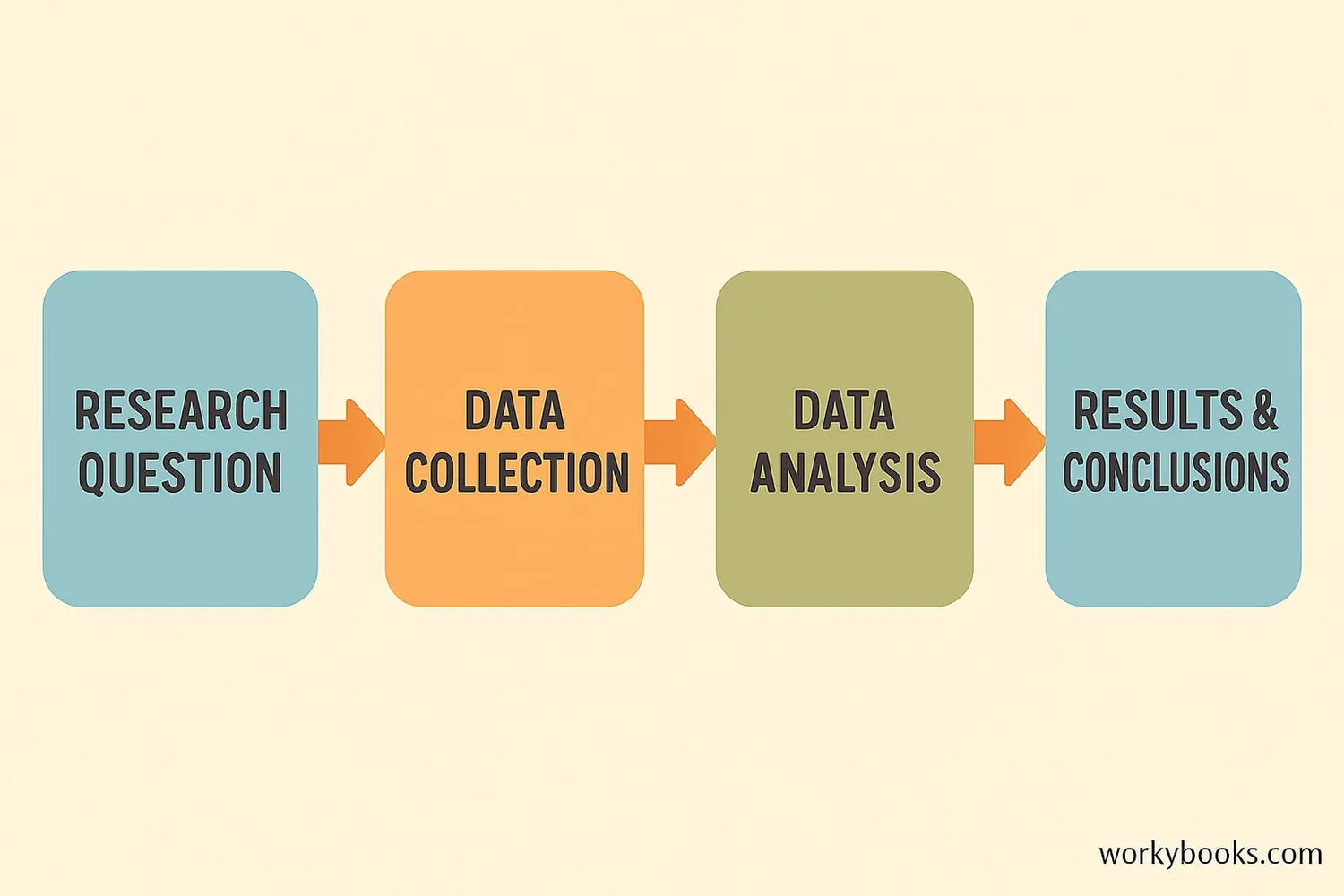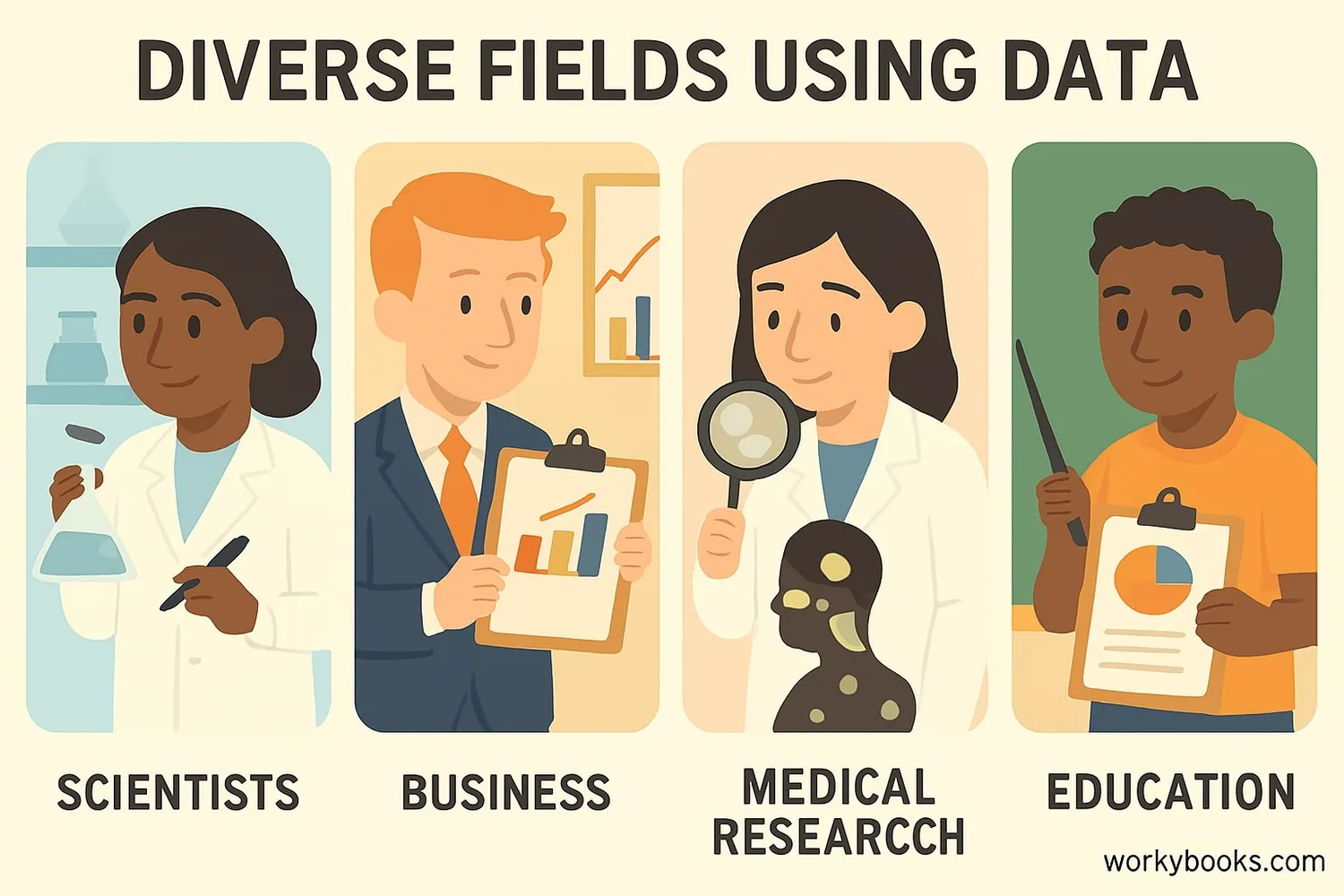Quantitative Research - Definition, Examples, Quiz, FAQ, Trivia
Discover how scientists use numbers and data to answer important questions!
What is Quantitative Research?

Quantitative research is a way scientists use numbers and measurements to find answers to questions. It helps us understand things by collecting data we can count, measure, and analyze using math.
Think of it like solving a mystery with numbers! Instead of just describing things, quantitative research gives us specific measurements. For example, rather than saying "many students like pizza," quantitative research would tell us "85% of students in our class chose pizza as their favorite food."
Research Fact!
Quantitative research helps scientists make predictions about things like weather, population growth, and even which toys will be popular!
Key Features:
- Numbers & Measurements: Uses data that can be counted or measured
- Surveys & Experiments: Collects information through structured methods
- Large Groups: Studies many people or things to find patterns
- Statistics: Uses math to analyze and interpret the data
How Quantitative Research Works

Quantitative research follows a step-by-step process to make sure the information is accurate and reliable. Scientists use special methods to collect and analyze data:
Research Question
Identify what you want to learn
Choose Method
Surveys, experiments, or observations
Collect Data
Gather numerical information
Analyze Data
Use math to find patterns
Report Results
Share findings with charts and numbers
Common Research Methods:
- Surveys: Asking people questions with multiple-choice answers
- Experiments: Testing something while controlling other factors
- Observations: Counting how often something happens
- Existing Data: Using information that's already been collected
Data Detective Tip!
Scientists often use both quantitative and qualitative research together to get a complete understanding of their topic.
Why Quantitative Research is Important

Quantitative research helps us in many ways! It provides accurate information that helps people make good decisions. Here's why it matters:
Scientific Discovery
Helps scientists test theories and make discoveries
Business Decisions
Helps companies understand customers and trends
Medical Advances
Helps doctors develop new treatments and medicines
Quantitative vs Qualitative Research
| Feature | Quantitative Research | Qualitative Research |
|---|---|---|
| Data Type | Numbers and statistics | Words and descriptions |
| Question Type | How many? How much? | Why? How? |
| Analysis Method | Math and statistics | Identifying themes and patterns |
| Sample Size | Large groups | Small groups |
| Example | 75% of students prefer math over history | Students explain why they prefer math |
Both types of research are valuable! Quantitative gives us the numbers, while qualitative helps us understand the reasons behind those numbers.
Quantitative Research Quiz
Test your research knowledge with this data quiz! Answer all 5 questions to see how much you've learned.
Frequently Asked Questions
Here are answers to some common questions about quantitative research:
Fun Research Trivia
Discover some amazing facts about research and data!
Ancient Data Collection
The earliest known census was conducted in ancient Babylon around 3800 BCE! They counted people, livestock, and food supplies to plan for their kingdom.
Medical Breakthrough
Quantitative research helped discover that washing hands reduces infections. In the 1840s, Dr. Ignaz Semmelweis noticed that when doctors washed their hands, fewer mothers died after childbirth.
Animal Researchers
Scientists have taught crows to collect data! In one experiment, crows learned to drop tokens into a machine to get food, helping researchers study animal intelligence quantitatively.
Space Data
The Hubble Space Telescope collects about 150 gigabits of scientific data every week - that's enough to fill 3,000 books! Scientists use quantitative methods to analyze all this information.





